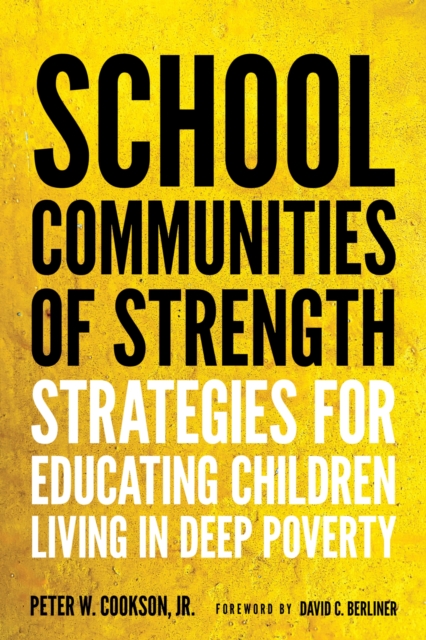
School Communities of Strength : Strategies for Educating Children Living in Deep Poverty Paperback / softback
by Peter W., Jr. Cookson, David C. Berliner
Paperback / softback
Description
An evidence-based plan of action to achieve educational justice for K–12 public school students from families whose income is 50% or more below the US poverty threshold. In School Communities of Strength, Peter W. Cookson, Jr., lays out a blueprint for providing equitable educational opportunities for students from all socioeconomic strata, and particularly for the five million American children who live with the extreme material hardship known as deep poverty.
This work issues an urgent call to action for K–12 schools to put in place the policies, practices, and programs that enable economically vulnerable students to thrive. Drawing from up-to-date findings in the science of learning and development as well as analyses of schools that serve students in poverty, Cookson pinpoints success strategies that can help schools improve their poverty responsiveness.
He shows how these strategies, including whole-child teaching and learning, asset-based approaches, and relationship-centered school culture, can help educators create the culturally responsive, inclusive environments that provide a base of safety from which students can better engage with their education. Offering astute analysis, Cookson notes that school communities of strength require adequate funding and also meaningful collaboration among families, neighborhood partners, and educators.
This book amplifies the idea that communities working together can drive transformative change, and it brings into focus three primary policy initiatives—to fully invest in whole students, to fully invest in schools, and to fully invest in eliminating the causes of deep poverty—that can advance educational equity.
Information
-
Out of stock
- Format:Paperback / softback
- Pages:160 pages
- Publisher:Harvard Educational Publishing Group
- Publication Date:23/04/2024
- Category:
- ISBN:9781682538807
Information
-
Out of stock
- Format:Paperback / softback
- Pages:160 pages
- Publisher:Harvard Educational Publishing Group
- Publication Date:23/04/2024
- Category:
- ISBN:9781682538807






